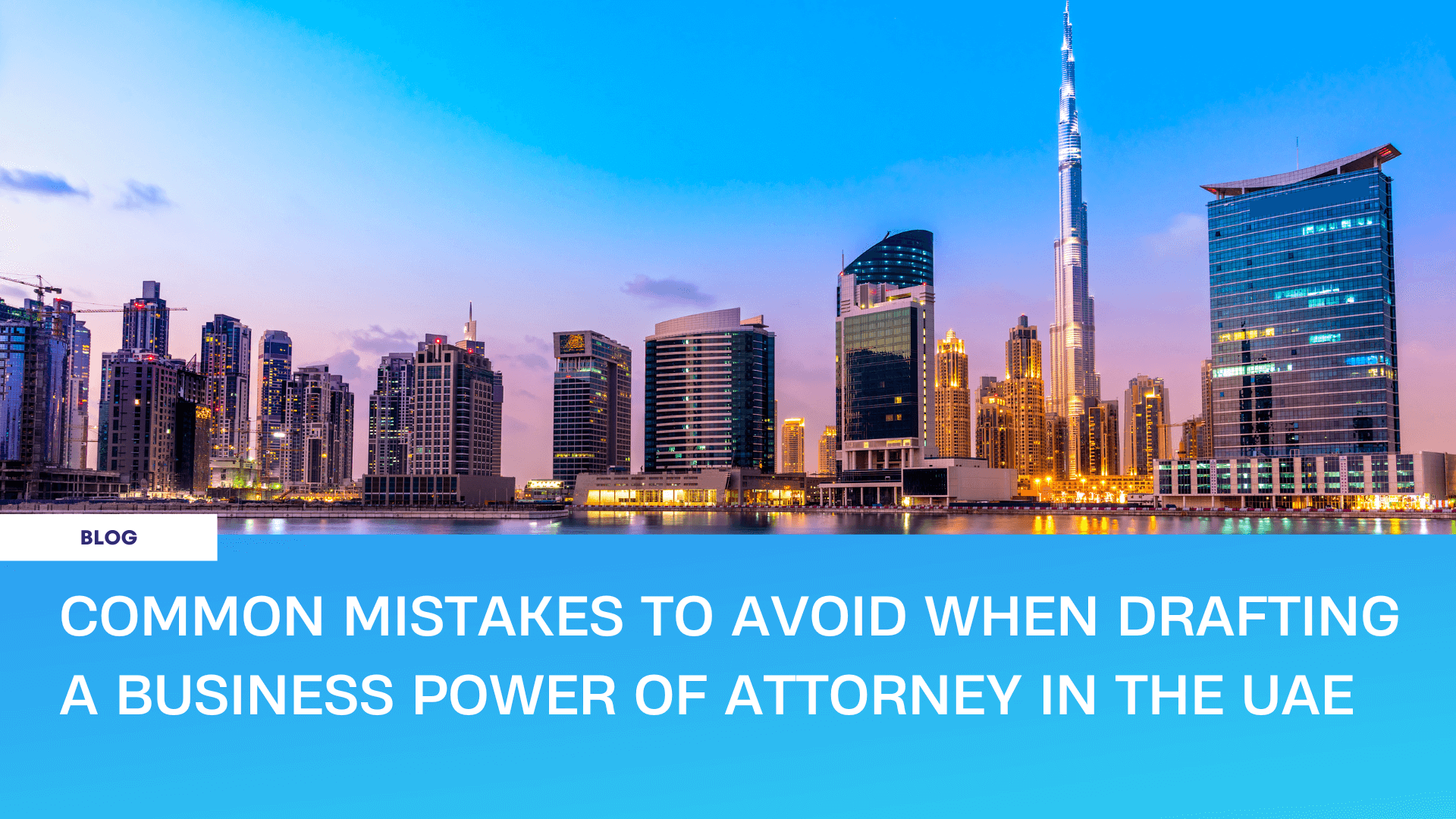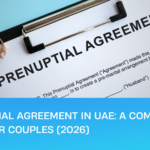Common Mistakes to Avoid When Drafting a Business Power of Attorney in the UAE

Navigating the legal landscape of the United Arab Emirates (UAE) can be a complex endeavour, particularly when it comes to drafting a business power of Attorney (POA). A power of attorney (POA) is a legal document that allows one person (the principal) to delegate decision-making authority to another person (the agent) in specific situations or for a specific duration. In the UAE, having a well-drafted power of attorney (POA) is crucial for businesses, as it can ensure seamless operations in the absence of the authorized signatory.
However, many businesses make mistakes when drafting their power of Attorney (POA), which can lead to abuse of power. In this blog post, we will highlight the most common mistakes when drafting a business power of attorney in the UAE.
- Not understanding the different types of Power of Attorney
There are two main types of power of attorneys: general and specific. A general power of attorney gives the agent broad & comprehensive authority to manage the business affairs, while a specific power of attorney grants authority only in specific requirements. Failing to understand the differences between these types can lead to an improperly drafted power of attorney and potential legal issues.
Solution: Before drafting a business power of attorney, consult with a legal expert to determine which type of power of attorney is most appropriate for your business needs.
- Not specifying the powers granted to the agent
Another common mistake is not clearly outlining the powers granted to the agent in the business power of Attorney. This can lead to misunderstandings and disputes, as the agent may try to exercise powers that are not intended.
Solution: Clearly specify the powers granted to the agent in the business power of attorney, whether it’s signing contracts, managing finances, or any other business-related matters.
- Not considering the agent’s qualifications
The choice of agent is critical, as this person will have significant decision-making authority over your business. Choosing an unqualified, inexperienced or arbitraty agent can lead to mismanagement and potential harm to your business operations.
Solution: Carefully select your agent, ensuring that they have the necessary qualifications, experience, and trustworthiness to manage your business affairs.
- Failing to include a validity clause
A power of attorney (POA) should include a validity clause that specifies the duration of the power of attorney and the conditions under which it can be revoked. This provision saves the process of revoking/cancelling a POA, as all involved parties are informed of the exact timeframe during which the power of attorney is necessary.
Solution: Ensure that your business power of attorney includes a validity clause with clear provisions for revocation, such as a specific date, the occurrence of a particular event, or at the discretion of the principal.
- Not having the power of attorney notarized and attested
In the UAE, power of attorney must be notarized and attested by the appropriate government authorities – Dubai courts notary to be considered legally valid. Failing to follow these procedures can render your power of attorney ineffective.
Solution: Consult with POA.ae consultants to ensure that your business power of Attorney is notarized and attested according to UAE law.
- Not keeping a copy of the Power of Attorney
It is crucial to maintain a copy of the power of attorney for your records, as you may need to refer to it in the future or provide it to third parties as proof of the agent’s authority.
Solution: Keep a copy of the notarized and attested power of attorney in a secure location and provide a copy to your agent and any other relevant parties.
In conclusion, drafting a business power of attorney in the UAE requires a thorough understanding of the legal requirements and potential pitfalls. By avoiding these common mistakes, you can ensure that your power of attorney is well-crafted and serves the best interests of your business.
Disclaimer: The content on this page is for general information purposes only and does not constitute legal advice nor should it be used as a basis for any specific action or decision. Nothing on this page is to be considered as creating a lawyer-client relationship or as rendering legal advice or legal services for any specific matter. Users of this website are advised to seek specific legal advice from their lawyer or legal counsel regarding any specific legal issues.





